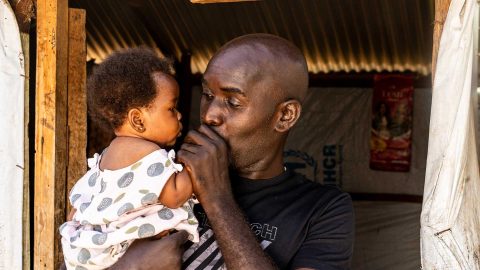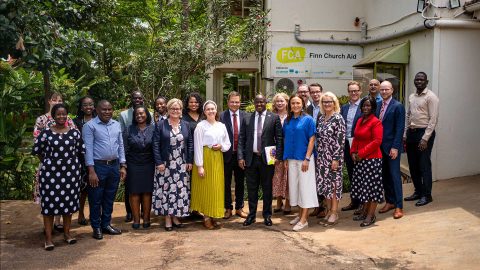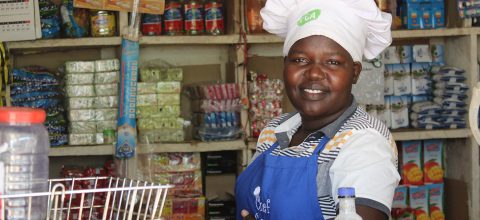Refugee situation in Uganda worsens, aid cut sharply
Conflicts in East and Central Africa show no signs of abating. That means the United States’ drastic cuts in international aid come at an exceptionally bad time.
Text and photos: Björn Udd
Large-scale wars are being waged in both the Democratic Republic of Congo (DRC) and Sudan. Meanwhile, conflicts in Ethiopia and South Sudan threaten to escalate. In Uganda, neighbour to many of these countries, there is not enough money to care for refugees currently living there, let along the new ones that arrive every day.
‘We left Congo because of the war. Because of bombings, we had to spend the night in the wilderness, so I decided to leave the country,’ says Mave Francin, 21.
She sits with her six-month-old son, Gift, in a reception centre in the Kyangwali refugee settlement in western Uganda, which is home to almost 150,000 people. Just yesterday, she was one of around 100 Congolese people who crossed Lake Albert – on the border between DRC and Uganda – by boat to escape the war.
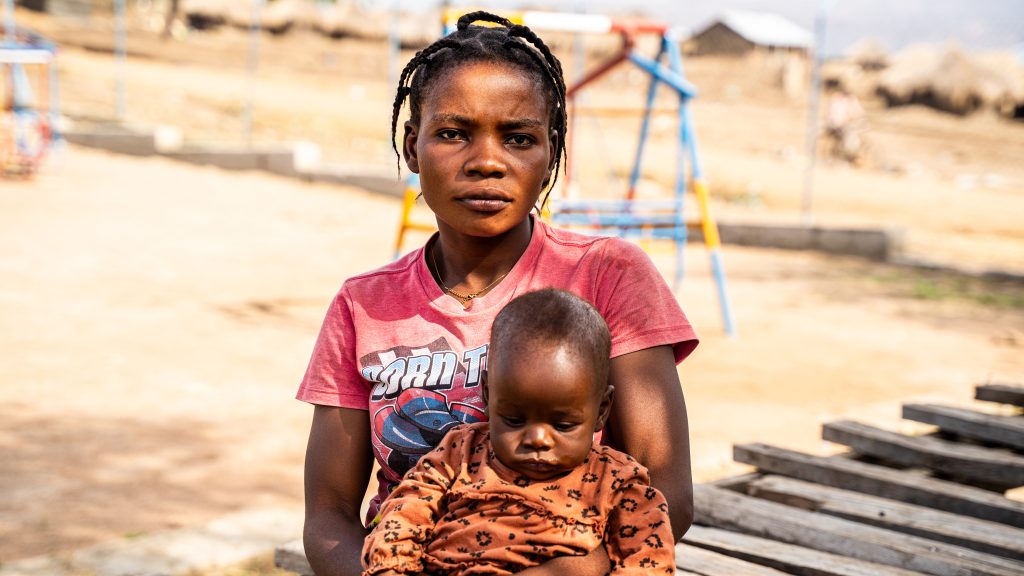
In Kyangwali, refugees are first registered and then taken to the nearest crowded centre, where Mave Francin and other new arrivals have to wait to be directed further. In Uganda, each refugee family is given a small plot of land, measuring 30 metres by 50 metres, where they can supplement the food aid they receive by growing crops like vegetables.
Refugees can often start a new life within a few weeks.
‘In March alone, we received more than 3,800 new residents here in Kyangwali, and every day another 450 to 500 people arrive,’ says Chali Tophious, head of the settlement.
Uganda is proud to be one of the countries that welcomes refugees with open arms. Currently, there are approximately 1.8 million refugees in a country with a population of around 50 million.
Previously, supporting refugees had been possible thanks to international aid, but now that the largest donor, the United States, has withdrawn its support for refugees, the future of Uganda’s reception policy is hanging in the balance. Cuts to basic services for refugees are enormous.
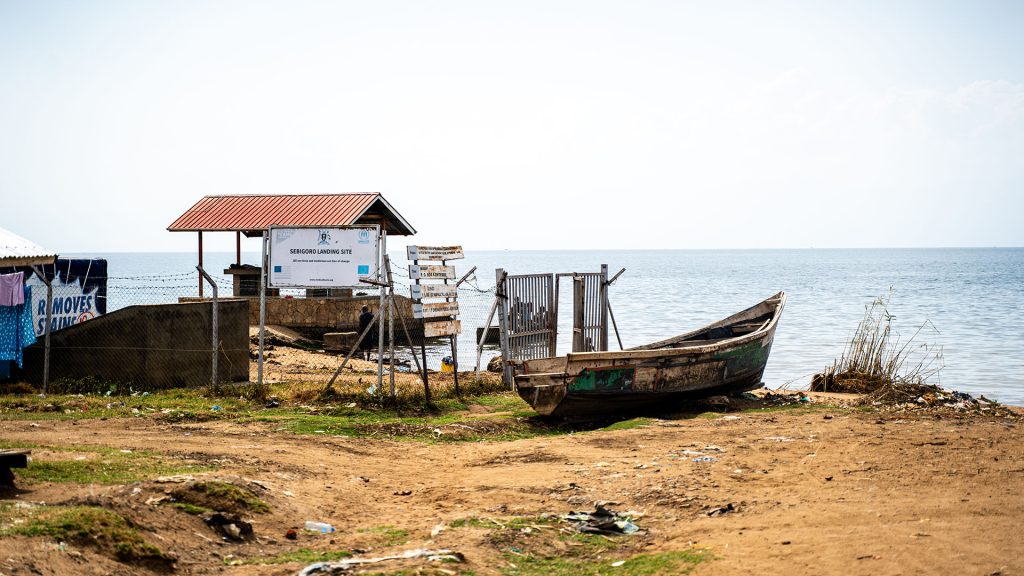
“We have huge gaps in our funding. The UN World Food Programme used to distribute energy-rich biscuits and water, but now we are struggling to get them. We don’t have enough toilets, healthcare services are scarce and mental health services have been cut off,” says Chali Tophious.
The monthly income support received by refugees has also fallen by about a third. It is now less than €2.50 per person. Families are supposed to use this money to cover school fees, medicines and food, which is impossible for people whose only source of income is this support.
The cuts are also evident in schools supported by Finn Church Aid (FCA). The number of pupils is growing, but there is simply no money for new buildings or even pens and notebooks.
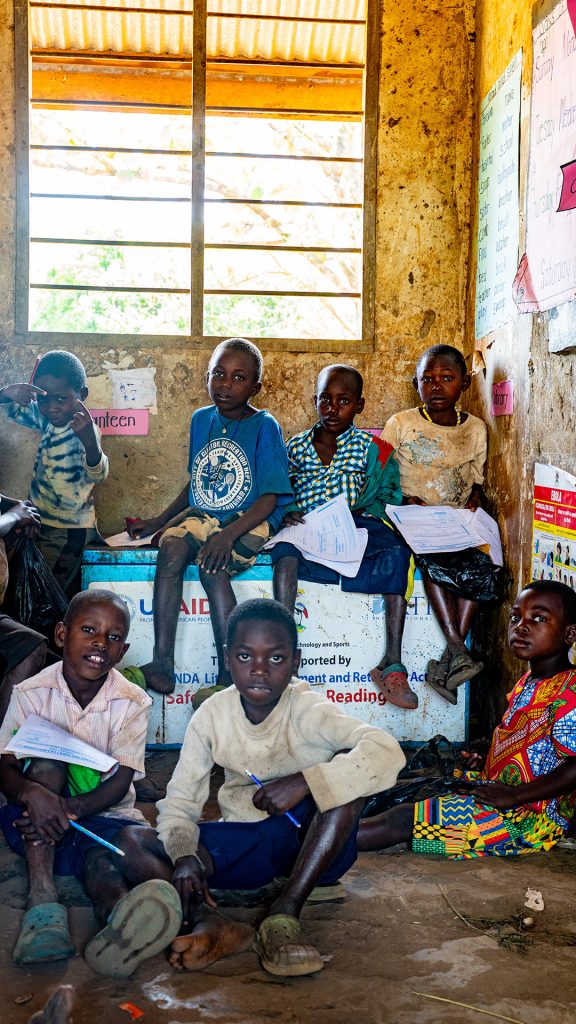
During our visit to Bukinda Primary School, which FCA has recently started supporting, national exams are underway, but some students loiter in the yard outside the classrooms.
‘They cannot afford to pay for the tests,’ says headmaster Samuel Tugumenawe.
According to Tugumenawe, there were just over 1,000 pupils at the school in February. He estimates that since then the number has risen to 1,500, and the school is unable to build new classrooms or hire more teachers.
“Currently, there are seven children per desk. The school has 16 teachers and two assistants,” he says.
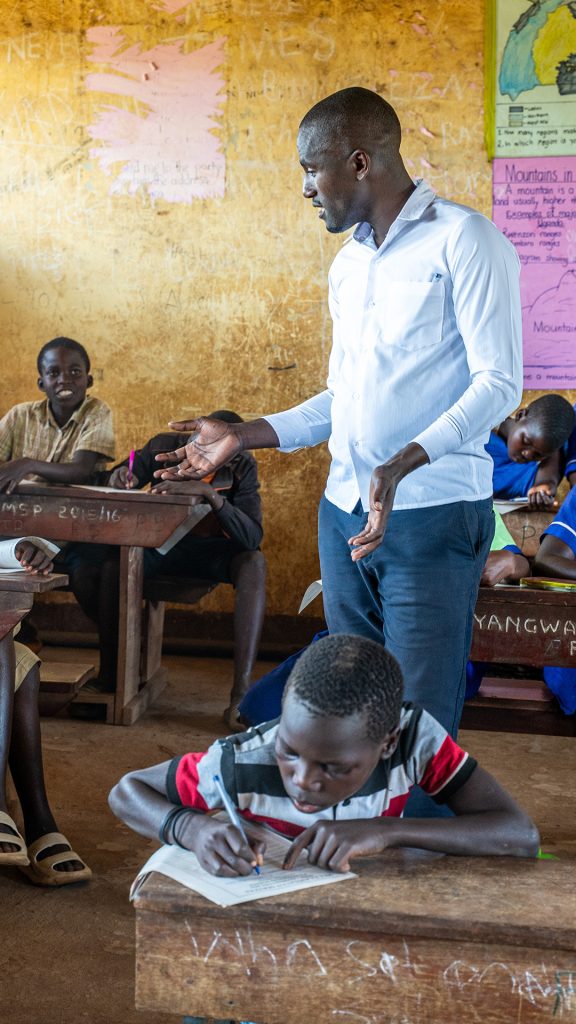
Integrating Congolese refugees has also been challenging, as they speak Swahili and French, and the school operates in English and Luganda, the Bantu language of the Baganda people, widely used in Uganda with over 2 million speakers.
“We had some challenges at first, but once we got the parents involved and they understood the importance of education, the situation calmed down.”
However, it is not easy for newly arrived refugees such as Mave Francin.
“I just hope that my son and I can live in safety somewhere where there is good healthcare and schools.”
—
